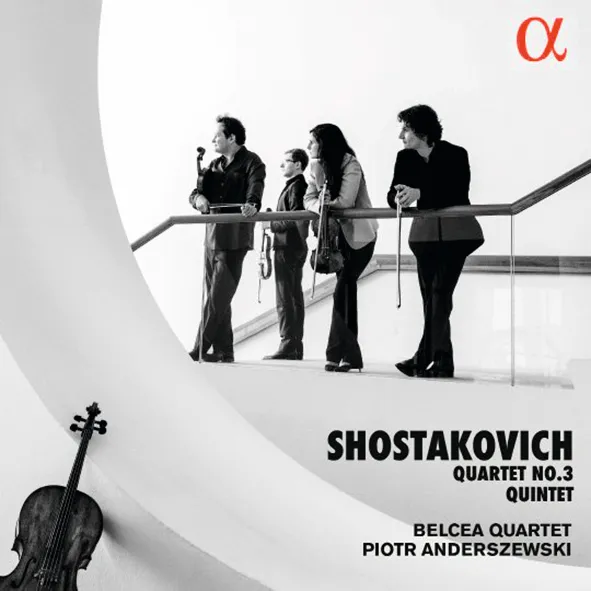
Shostakovich String Quartet No. 3 in F; Piano Quintet in G minor Belcea Quartet; Piotr Anderszewski (piano) Alpha ALPHA360 67:47 mins
The Belcea Quartet’s first Shostakovich release offers much food for thought. Their insightful performance of the Third Quartet fully encapsulates the work’s war-scarred anguish. In the desperately sad violin monologue of the final bars, you really get the vision of dead bodies strewn across a battlefield. But this kind of imagery also surfaces much earlier: for example, in the grotesque skeleton-like sounds produced in the second movement’s middle section; or their relentlessly slashing articulation of the ensuing Allegro non troppo; or in their impassioned cries for help at the tormented climax to the passacaglia Adagio. Even the seemingly childlike innocence of the opening is subverted by the Belcea’s almost mechanical and emotionally neutral phrasing. Such world-weariness is carefully manipulated so as to make the development section, where the opening material is subjected to frantic fugal development, all the more disturbing. On the surface, the Piano Quintet appears a much more amiable work, particularly if you take into account the riotous circus-like material of the ‘Scherzo’ and the charm and elegance of the ‘Finale’. Nonetheless, the underlying mood is one of melancholy. Even the ‘Finale’ has its moments of gloom especially when Shostakovich, albeit fleetingly, recalls material from earlier movements. Such passages, as well as the uncompromisingly slow progression of the ‘Fugue’ and the funereal tread of the ‘Intermezzo’, are poignantly projected here. Pianist Piotr Anderszewski works miracles with Shostakovich’s often spare two-part piano writing, bringing out a greater wealth of colours than is normally the case. I waxed lyrical about the relatively recent Hyperion release featuring Marc-André Hamelin and the Takács Quartet in the Quintet, but this newcomer is just as compelling.
Erik Levi